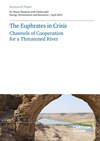-
From Gaza to the Euphrates, Alarm Bells for Mideast Water Resources
September 22, 2015 By Schuyler Null The board of the United Nations’ lead organization on trade and development, called UNCTAD, released an assessment of Gaza’s development challenges during their annual meeting in Geneva this month and the news is not good. In 2012, the UN warned that a “herculean” development effort would be to keep pace with Gaza’s rapid population growth. Since then, more fighting with Israel has made things worse, particularly with regard to water and food security. Ninety-five percent of the water from Gaza’s coastal aquifer is unsafe for drinking without treatment, the report says. Contamination and over-extraction may even render it unusable by next year and damage may be irreversible if not addressed in the next five years. Seventy-two percent of households are now affected by food insecurity, and UNCTAD says 868,000 people – nearly half the population – rely on the United Nations alone for food. Meanwhile, 300,000 people are projected to be added to Gaza in the next five years. Explaining the lack of progress, UNCTAD minces no words: “No amount of aid would have been sufficient to put any economy on a path of sustainable development under conditions of frequent military strikes and destruction of infrastructure, isolation from global markets, fragmentation of domestic markets, and confiscation and denial of access to national natural resources.”
The board of the United Nations’ lead organization on trade and development, called UNCTAD, released an assessment of Gaza’s development challenges during their annual meeting in Geneva this month and the news is not good. In 2012, the UN warned that a “herculean” development effort would be to keep pace with Gaza’s rapid population growth. Since then, more fighting with Israel has made things worse, particularly with regard to water and food security. Ninety-five percent of the water from Gaza’s coastal aquifer is unsafe for drinking without treatment, the report says. Contamination and over-extraction may even render it unusable by next year and damage may be irreversible if not addressed in the next five years. Seventy-two percent of households are now affected by food insecurity, and UNCTAD says 868,000 people – nearly half the population – rely on the United Nations alone for food. Meanwhile, 300,000 people are projected to be added to Gaza in the next five years. Explaining the lack of progress, UNCTAD minces no words: “No amount of aid would have been sufficient to put any economy on a path of sustainable development under conditions of frequent military strikes and destruction of infrastructure, isolation from global markets, fragmentation of domestic markets, and confiscation and denial of access to national natural resources.” Much has been made of the precipitating effect of a record-breaking drought on the outbreak of Syria’s civil war. An influx of farmers forced into urban areas combined with Iraqi refugees to create a spark that ignited simmering tensions. However it wasn’t only three years of drought that sparked this movement of people but a longer-term deterioration of the Euphrates River, according to a research paper from London-based think tank Chatham House. Since 1972, the lifeline of the Fertile Crescent has lost 40-45 percent of its flow, write M. Nouar Shamout and Glada Lahn. Between Syria, Iraq, and Turkey, 27 million people rely on the Euphrates for drinking water; tens of millions more rely on it for food and energy. Uncoordinated development across the three countries (32 dams have been built in the last 50 years), population growth, and pollution have taken a major toll, causing an exodus from rural areas and salinization in southern Iraq. The need to reverse deterioration of state capacity and strengthen water management in the region “has never been greater,” say Shamout and Lahn, and the urgency will only increase. Climate change is expected to increase temperatures and the occurrence of extreme weather events (e.g., droughts). Compared to 2010, the World Resources Institute projects water conditions may be up to eight times more stressed in 2025.
Much has been made of the precipitating effect of a record-breaking drought on the outbreak of Syria’s civil war. An influx of farmers forced into urban areas combined with Iraqi refugees to create a spark that ignited simmering tensions. However it wasn’t only three years of drought that sparked this movement of people but a longer-term deterioration of the Euphrates River, according to a research paper from London-based think tank Chatham House. Since 1972, the lifeline of the Fertile Crescent has lost 40-45 percent of its flow, write M. Nouar Shamout and Glada Lahn. Between Syria, Iraq, and Turkey, 27 million people rely on the Euphrates for drinking water; tens of millions more rely on it for food and energy. Uncoordinated development across the three countries (32 dams have been built in the last 50 years), population growth, and pollution have taken a major toll, causing an exodus from rural areas and salinization in southern Iraq. The need to reverse deterioration of state capacity and strengthen water management in the region “has never been greater,” say Shamout and Lahn, and the urgency will only increase. Climate change is expected to increase temperatures and the occurrence of extreme weather events (e.g., droughts). Compared to 2010, the World Resources Institute projects water conditions may be up to eight times more stressed in 2025.Sources: Chatham House, UN Conference on Trade and Development.
Topics: agriculture, climate change, conflict, consumption, development, energy, environment, environmental peacemaking, environmental security, international environmental governance, Iraq, Israel, livelihoods, Middle East, natural resources, Palestinian Territories, population, Reading Radar, security, Syria, Turkey, UN, water
 A Publication of the Stimson Center.
A Publication of the Stimson Center.





